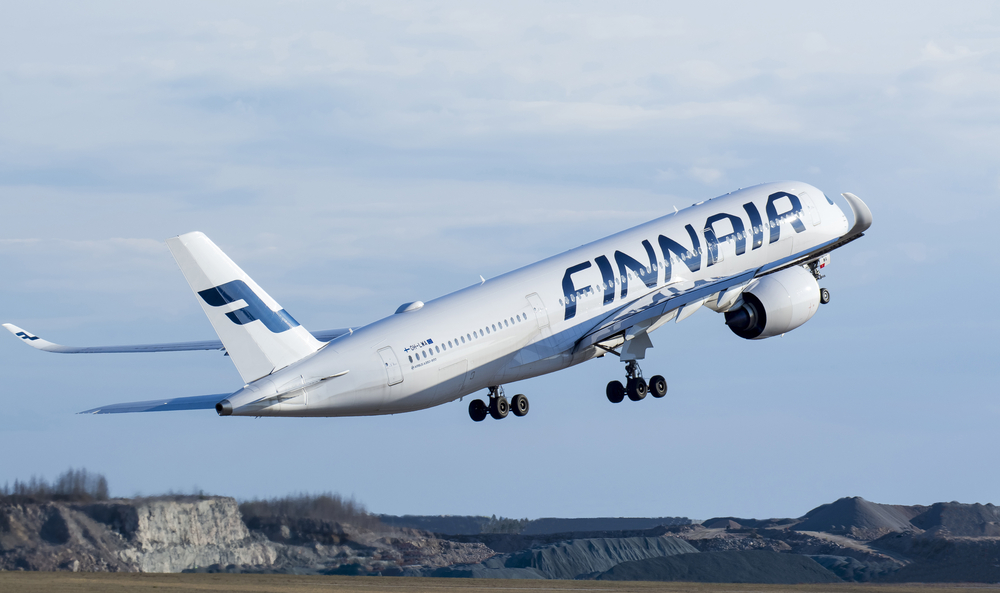
It has been a rough three years for Finnair. As if the pandemic wasn’t bad enough, losing access to Russia’s airspace was another big blow. Now, the airline is taking steps to adjust. Prior to 2020, Finnair built itself into a leading provider of flights between Europe and Asia, capitalizing on Helsinki’s favourable geography. As an analysis of Diio by Cirium data shows, the carrier’s 2019 route network included flights to Japan, mainland China, Thailand, Hong Kong, South Korea, Singapore, and Vietnam.
Finnair in fact operated more flights between Asia and Europe than even Air France or British Airways. In Japan alone it served Tokyo, Osaka, Nagoya, Fukuoka, and Sapporo. Russian airspace was traversed by these flights. Finnair states that if one were to avoid Russian airspace while connecting Finland and Japan, flight times would be increased by as much as 40%. The same generally applies to flights bound for China and South Korea, although those heading to Southeast Asia are not as affected. Despite the relaxation of travel restrictions in most Asian markets in the fourth quarter of 2022, Finnair was still serving only eight East Asian cities, down from 14 in the same period of 2019.
According to Diio data for the first quarter of this year, Finnair’s East Asian presence is still around 50% smaller than it was before the pandemic, measured by seat capacity. Importantly, Finnair was also rather large in Russia itself, scheduling (in 2019) nearly 300,000 seats to Moscow, St. Petersburg, Yekaterinburg, Kazan, and Samara. At one time, traveling through Helsinki was a common way for Russians to reach North America, and vice versa. All of Finnair’s Russian flying is now gone. For the record, the airline has not served the Ukrainian market for many years (Diio shows service to Kiev ending in 2012).
The airline is responding to these difficult challenges with major changes to its network. One is providing more capacity to the Middle East, boosted by a new partnership with Qatar Airways. That includes new flights to Doha not just from Helsinki but from Stockholm and Copenhagen as well. Importantly, Qatar Airways purchases a fixed share of passenger and cargo capacity on these flights, mitigating risk for Finnair. The latter is also flying more flights and seats to Israel, while retaining service to Dubai.
India is another significant growth market. Last year, Finnair launched a new Helsinki nonstop to Mumbai, complementing service to Delhi. Comparing Q1 of this year with Q1 of 2019, Diio also shows capacity up to several eastern European markets like Poland, Hungary, and neighbouring Estonia, as well as to several western European leisure markets like Spain and Portugal.
On the other hand, Finnair’s capacity isn’t just down to Asia and Russia. It’s also down quite substantially to Germany, France, Sweden, and the UK. These were major markets for connecting travellers previously using Finnair to travel to and from Asia. Finnair competed with Lufthansa for example, in moving people between Germany and Japan, including harder to reach secondary cities in each country. Diio’s FM traffic tool, sure enough, shows many passengers on Finnair’s Helsinki-Tokyo flights originate in Berlin.
The biggest growth market of all for Finnair? It’s the United States. Dallas-Fort Worth and Seattle are new to the network. For a time, flights to New York, Los Angeles, and Miami were available not just from Helsinki but also Stockholm. Finnair works closely with American Airlines in the transatlantic market.
Will these changes be enough to get Finnair back on its feet? The company did report a profit for the off-peak fourth quarter of 2022. That’s a good sign that the airline is skilfully reallocating capacity in response to extreme market shocks.
Will Finnair add more new routes in 2023? Will it restore more Asian flying? Will it have to drop any additional routes? Keep up with Finnair’s latest moves—and developments throughout the global airline industry—with Cirium, the global leader in aviation analytics for travel, airlines, airports, and finance.




















